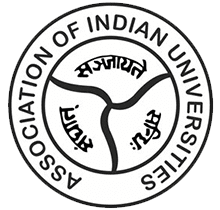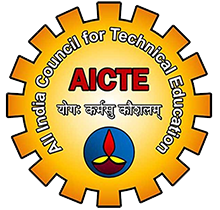Distance B.E/B-Tech in Electronics and Instrumentation Engineering
ADMISSION OPEN
Please fill the form below for More Information
About Distance B.E/btech in Electrical Engineering
Distance B-Tech in Electrical Engineering is a 4 year undergraduate degree specialised in electrical field. The main topic of Distance B.tech in Electrical Engineering includes various usage of electricity. The study of electronics and electromagnetics is also covered in the course. The students will learn how to employ electric principles to create significant electric machinery in this course. The curriculum for Distance BTech Electrical Engineering degree is identical to that of the on-campus course.
The topics covered in distance learning in electrical engineering also includes electrical engineering, engineering mechanics/introduction to thermodynamics, engineering drawing, computer programming, mathematical statistics, and numerical methods, electric circuits, digital systems, transmission lines, and radiating systems, microprocessors, electromagnetic theory, analog communication, management elective, cultural education, etc. Distance BTech programme in electrical engineering will give you in-depth knowledge of the electric field. Students who aspire to become engineers in the electrical industry can benefit greatly from taking this course in terms of employment opportunities.
Who Should Pursue Distance B.E/B.tech in Electrical Engineering
For those who fit certain requirements and have special preferences, distance B.E./B.Tech in Electrical Engineering may be an appropriate choice. A distance B.E./B.Tech in electrical engineering may be pursued by the following sorts of students:
Professionals in the Electrical or Related Fields in the Workforce
engineers and other professionals in related fields can update their knowledge and abilities through distance learning without having to take time away from their current jobs. It's a great choice for people looking to specialize or develop their careers.
Time-Constrained Aspiring Engineers
Those with a strong interest in electrical engineering but who are constrained by work or other commitments may choose to pursue their academic goals through remote learning.
Non-Traditional Students
If a student wanted to enter the area of electrical engineering but couldn't immediately pursue a traditional B.E./B.Tech in the subject, distance learning might offer them a flexible route to do so.
Geographically Remote Students
Geographically remote students can benefit from distant learning, which enables them to study from any location with an internet connection, especially those who reside in locations with limited access to on-campus electrical engineering education.
Self-motivated Learners
Successful distance learning necessitates self-control and the drive to pursue academic independence. Students that have a strong dedication to studying and can manage their time well may do well in this style.
People Seeking Career Change
If someone is thinking about switching from another profession to electrical engineering, remote learning can be a method to get the necessary credentials while juggling other obligations.
Cost-Conscious Students
Distance education programs can sometimes be more cost-effective than traditional on-campus options, making it an attractive choice for students looking for affordability.
Continuing Education for Practicing Engineers
For engineers who already hold a diploma or associate degree in electrical engineering, distance B.E./B.Tech programs offer an opportunity to complete their undergraduate education.
Is B.Tech Through Distance Education Valid?
This is a question concerning, almost, every individual who wants to pursue B. Tech through distance education. To be very clear regarding this matter “Distance B. Tech is not valid”. MHRD & Joint committee of UGC-AICTE-DEC issued notices dated 29-07-2009 and 13-08-2009 respectively, declaring Distance B. Tech invalid. Although AICTE has come up with an alternative solution i.e., delivering Regular B. Tech through Work-integrated learning programs/ part-time mode/ online mode. There are many UGC-AICTE approved universities in India offering alternatives for B. TECH DISTANCE EDUCATION courses.
University Approvals To Check Before Pursuing B.Tech Distance Education
Anytime, Anywhere



Are You
Eligible?
Education
Candidates must have completed their 10+2 requirements with Physics, Chemistry, and Mathematics as the three required topics in order to be eligible for the B.Tech in Electronics and Instrumentation Engineering. Additionally, they must have received at least 50% on their 10+2 test. But the requirements may differ from one institute to another.
Fees for B. Tech Distance Education
50K – 60K Per Year (As fees varies according to universities)
Assessment & Examination
- Internal assessment will be conducted based on assignments and they will have a weightage of 25%Mechanical Engineering
- Examination will be conducted at the end of every term and they will have a weightage of 75%
- Each examination paper will be of 100 marks
- 40% is the Minimum passing criteria [In Internal Assessment + Term End Examination]
Semester
| S. No. | Subject Name |
|---|---|
| BEBSC–101 | Mathematics–I |
| BEBSC–102 | ENGINEERING CHEMISTRY |
| BEHSMC-103 | English for Communication |
| BEESC-104 | Basic Electrical Engineering |
| BEESC-105 | Engineering Graphics and Design |
| BEESC-106 | Manufacturing Practices |
| BELC–107 | Self Study / GD Seminar |
Semester II
| S. No. | Subject Name |
|---|---|
| BEBSC-201 | MATHEMATICS–II |
| BEBSC-202 | ENGINEERING PHYSICS |
| BEESC-203 | BASIC COMPUTER ENGINEERING |
| BEESC-204 | BASIC MECHANICAL ENGINEERING |
| BEESC-205 | BASIC CIVIL ENGINEERING & MECHANICS |
| BEHSMC-206 | LANGUAGE LAB |
| BELC–207 | INDUSTRIAL TRAINING |
Semester III
| S. No. | Subject Name |
|---|---|
| BEA–301 | Mathematics-III |
| EEA–302 | Electromagnetic Field |
| EEA- 303 | Electrical Machines – I |
| EEA–304 | Analog Electronics |
| EEA–305 | Electrical Circuit Analysis |
| EEA–306 | Java Programming |
| EEA–307 | Self Study / GD Seminar |
| EIA–308 | Internship–I |
Semester IV
| S. No. | Subject Name |
|---|---|
| BEA-401 | Energy, Ecology, Environment and Society |
| EEA- 402 | Digital Electronics |
| EEA- 403 | Electrical Machines – II |
| EEA- 404 | Power System – I |
| EEA-405 | Power Electronics |
| EEA-406 | Software Lab-I (Circuit Simulator) |
| EEA-407 | Industrial Training –I |
Semester V
| S. No. | Subject Name |
|---|---|
| EE-501 | Control Systems |
| EEA-502 | Microprocessors |
| EEA-503 | Electrical Machine Desig |
| Program Elective I | |
| EEA-504 (A) | Signals and Systems |
| EEA-504 (B) | Line Commutated and Active Rectifiers |
| Open Core Elective - I | |
| EEA-505 (A) | Electrical Materials |
| EEA-505 (B) | Embedded Systems |
| EEA-506 | Industrial Training-I |
Semester VI
| S. No. | Subject Name |
|---|---|
| EEA-601 | MPower Systems – II |
| EEA-602 | Measurements and InstrumentationI |
| Program Elective -II | |
| EEA-603 (A) | Electrical and Hybrid Vehicles |
| EEA-603 (B) | Digital Signal Processing |
| EEA-604 (C) | Industrial Electrical Systems |
| Program Elective -III | |
| EEA-604 (a) | Computer Architecture |
| EEA-604 (B) | Wind and Solar Energy Systems |
| EEA-604 (C) | Computational Electromagnetics |
| Open Core Elective | |
| EEA 605 (A) | Internet of Things |
| EEA 605 (B) | Power Plant Engineering |
| EEA 605 (C) | Modern Manufacturing Processes |
| EEA 606 | Minor Project |
Semester VII
| S. No. | Subject Name |
|---|---|
| EEA-701 | Power System Protection |
| EEA-702 | Electrical Drives |
| Program Elective – IV | |
| EEA-703 (A) | High Voltage Engineering |
| EEA-703 (B) | Power Quality and FACTS |
| EEA-703 (C) | Image Processing |
| Open Core Elective-III | |
| EEA-704 (A) | VLSI Circuits |
| EEA-704 (B) | Evolutionary Techniques |
| EEA-704 (C) | Data Structures and Algorithms |
| EEA 705 | Project Stage-I |
| EEA 706 | Self Study/GD/Seminar |
Semester VIII
| S. No. | Subject Code |
|---|---|
| EEA-801 | Power System Dynamics and Control |
| Program Elective – V | |
| EEA-802 (A) | Generalized Theory of Electrical Machines |
| EEA-802 (B) | HVDC Transmission Systems |
| EEA-802 (C) | Advanced Electric Drives |
| Open Core Elective-IV | |
| EEA 803(A) | Cyber Law and Ethics |
| EEA-803 (B) | Project Management |
| EEA-803 (C) | Big data Analysis |
| EEA-804 | Project Stage-IIt |
Job options
Jobs directly related to your degree include:
Electronics Engineer
Instrumentation Engineer
Embedded Systems Engineer
Electronics Engineer
Renewable Energy Engineer
Power Systems Engineer
Embedded Systems Engineer
Control Systems Engineer
Electronics Design Engineer
Power Electronics Engineer
Robotics Engineer
Telecommunications Engineer
Energy Systems Engineer
Jobs where your degree would be useful include:
Electronics Engineer
Instrumentation Engineer
Control Systems Engineer
Automation Engineer
Embedded Systems Engineer
Calibration Technician
Product Development Engineer
Process Control Engineer
Quality Assurance Engineer
Robotics Engineer
Specialization Courses we offer
There is a moment in the life of any aspiring.

Civil Engineering
When television was young, there was a hugely popular show based on the still popular fictional characte.

Chemical Engineering
Chemical engineering is a discipline that uses the study of chemistry, physics, biology, and mathematical principles to design

Electronics & Communication Engineering
When television was young, there was a hugely popular show based on the still popular fictional characte

Computer Science
Distance B.Tech in Computer Science Engineering is an undergraduate degree which lasts for four years
Latest posts from our Blog
In the history of modern astronomy there is.








